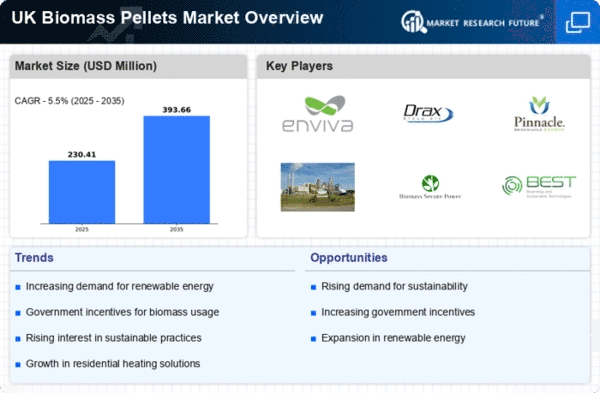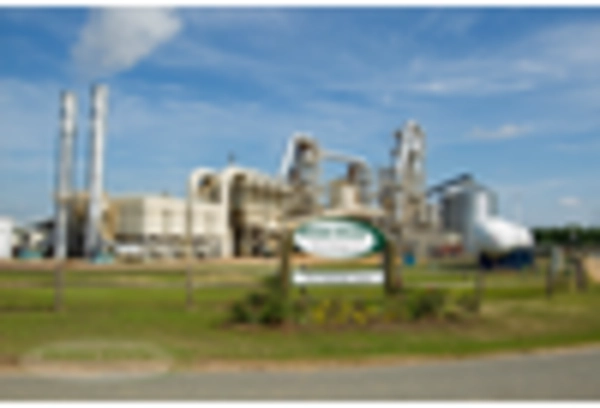The biomass pellets market in the UK is characterized by a competitive landscape that is increasingly shaped by sustainability initiatives and technological advancements. Key players such as Drax Group (GB), Enviva (US), and Pinnacle Renewable Energy (CA) are actively pursuing strategies that emphasize innovation and regional expansion. Drax Group (GB), for instance, has positioned itself as a leader in renewable energy by investing heavily in biomass conversion technologies, which not only enhance operational efficiency but also align with the UK’s carbon reduction targets. Meanwhile, Enviva (US) focuses on securing long-term supply agreements, thereby ensuring a stable revenue stream while expanding its production capacity to meet growing demand.The market structure appears moderately fragmented, with several players vying for market share. Key tactics employed by these companies include localizing manufacturing to reduce transportation costs and optimizing supply chains to enhance reliability. This competitive environment is further influenced by the collective actions of major players, which often set benchmarks for operational standards and sustainability practices across the industry.
In October Drax Group (GB) announced a significant partnership with a leading technology firm to develop advanced biomass processing techniques. This collaboration is expected to enhance the efficiency of biomass conversion, potentially reducing production costs by up to 15%. Such strategic moves not only bolster Drax's market position but also reflect a broader trend towards technological integration in biomass production.
In September Enviva (US) expanded its operations by acquiring a biomass pellet manufacturing facility in Scotland. This acquisition is strategically important as it allows Enviva to tap into the growing European market while enhancing its supply chain capabilities. The move is indicative of a trend where companies are seeking to establish a stronger foothold in regions with favorable regulatory environments for renewable energy.
In August Pinnacle Renewable Energy (CA) launched a new line of premium biomass pellets designed for industrial applications. This product innovation is significant as it caters to a niche market that demands higher quality and performance, thereby allowing Pinnacle to differentiate itself from competitors. The introduction of such specialized products may shift competitive dynamics, emphasizing quality over price in certain segments of the market.
As of November the biomass pellets market is witnessing trends that include increased digitalization, a focus on sustainability, and the integration of AI technologies in production processes. Strategic alliances are becoming more prevalent, as companies recognize the need to collaborate in order to enhance their competitive edge. Looking ahead, it is likely that competitive differentiation will increasingly hinge on innovation and technological advancements rather than solely on price. This shift suggests a transformative phase in the market, where reliability in supply chains and the ability to adapt to regulatory changes will be paramount.
















